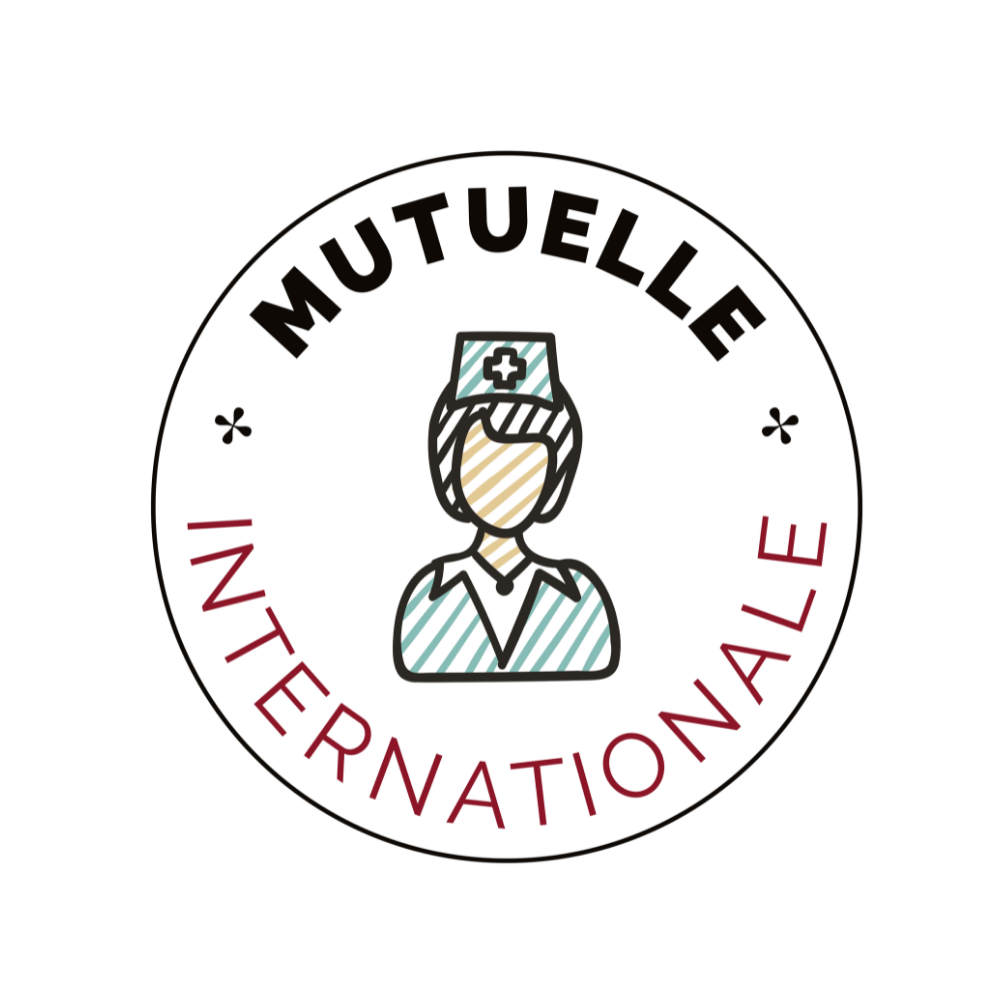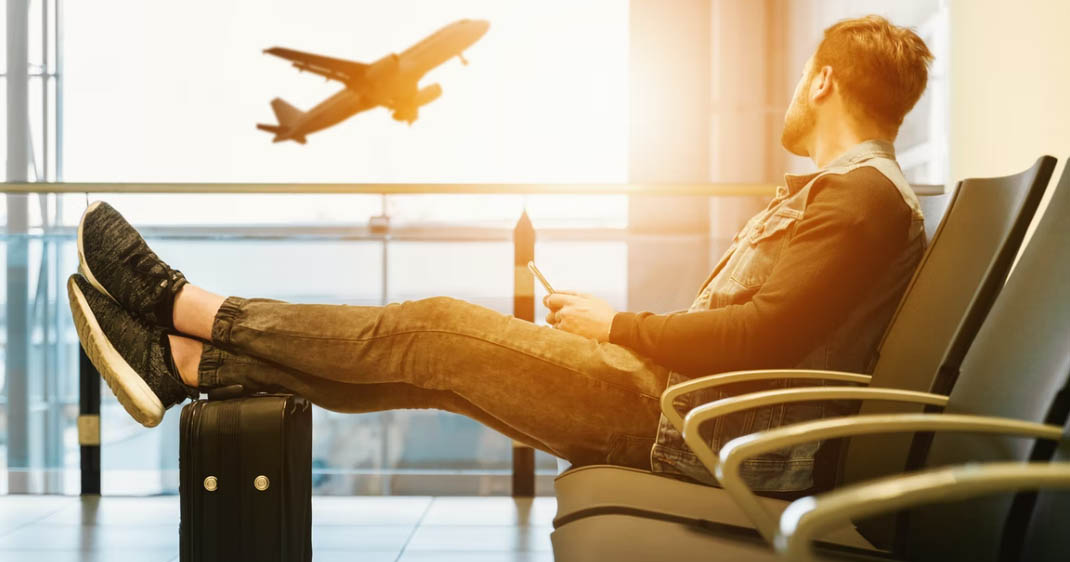|
IN BRIEF
|
When preparing to go on an adventure, health should be a priority. Whether it’s a relaxing vacation on a sunny beach or an expedition through exotic locations, it’s essential to adopt health tips relevant to avoid problems. To travel safely, it is crucial to learn about the vaccinations recommended, consult your doctor and take the necessary hygiene precautions. From taking out travel insurance to security measures adapted to your destination, every detail counts to guarantee a peaceful and hassle-free stay. Get ready to explore the world while preserving your well-being!
Traveler health: essential advice for a safe trip
Preparing your trip is not limited to choosing a destination or accommodation; it is also crucial to pay attention to your health before and during the stay. This article offers essential advice for traveling peacefully, with a focus on benefits and the disadvantages to take into account to ensure your safety on site.

Axa mutual price: everything you need to know about prices and guarantees
IN BRIEF Pricing criteria : Profile, level of guarantees, management fees. Free quote online from €9.04/month. 7 formulas And 3 optional packs at Axa. Refunds included for routine care, hospital, dental And optics. Free download of guarantee tables. Formulas My…
Benefits
Taking a proactive approach to health when traveling can help you avoid unpleasant surprises. First, consult a doctor at least 6 weeks before your departure is essential. This allows you to obtain personalized advice on vaccinations necessary depending on your destination, in particular the obligation of vaccination against yellow fever if you come from a country at risk.
Then, find out about the health risks countries crossed will help you make informed decisions. Government sites, such as this one, are an excellent source of information. With this knowledge, you will be able to avoid diseases through appropriate preventive measures, such as malaria prevention or other infections.
Furthermore, subscribe to a travel insurance is a significant asset. This protects you against unforeseen medical emergencies, making your trip not only safer, but also less stressful. You can visit sites like Geodesk to explore your insurance options.
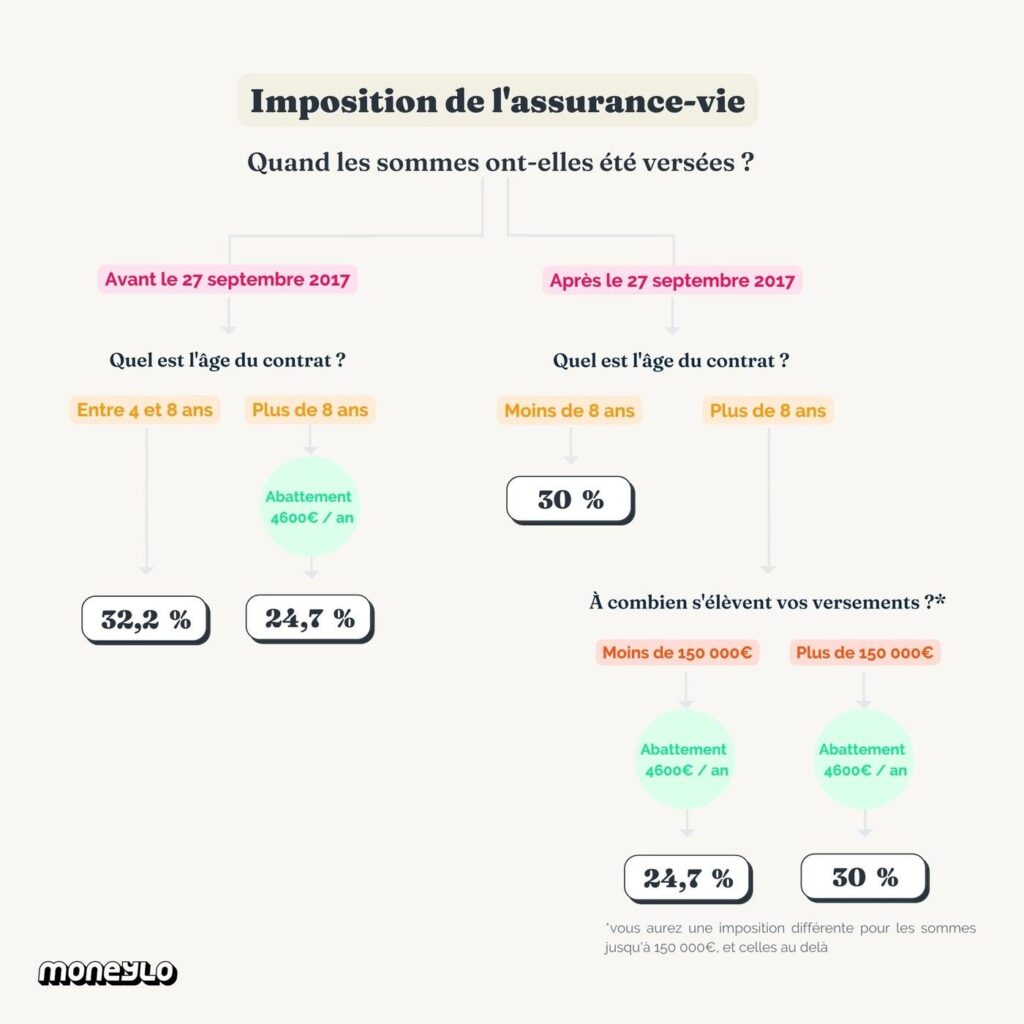
1st euro insurance: a complete guide to understanding its advantages
IN BRIEF Support health costs from first euro spent Reimbursement to 100% real amounts Advantageous rates for better management of your health budget Exemption fromadvance fee in case of hospitalization Immediate coverage for expatriates and international travelers A single contact…
Disadvantages
disadvantages associated with health preparation for travel. First of all, the process can be time-consuming. Between medical consultations and the search for vaccines required, you may feel overwhelmed by the organization before you even set foot at the airport.
Then, the cost of vaccines or preventive treatments can be a barrier for some travelers. Indeed, in addition to the cost of the medical consultation, vaccination and insurance bills can quickly add up. In some cases, this could dissuade people from traveling or cause them to reduce their destinations.
Finally, despite all the precautions taken, the risk of falling ill while traveling remains real. Constant vigilance is required, particularly in terms of hygiene, and this can be a source of stress. For more information, you can check out helpful resources, such as these practical tips.

Axa mutual health: how to contact customer service by telephone
IN BRIEF Phone number: Call 3641 (free service, cost depends on operator). Hours: Available 24/7 and 6/7. For health insurance: Contact 09 70 80 81 82 from Monday to Friday, from 9am to 6pm. Assistance: Emergency number 01 55 92…
Traveler health: essential advice for a safe trip
When considering going abroad, it is essential to take your health into account. Each destination presents specific health risks. This article offers you practical advice to guarantee your safety and allow you to travel with complete peace of mind, while preserving your health.

Axa mutual business: everything you need to know
IN BRIEF Obligation to subscribe to a contract of complementary health for the employees Six options available: First, Eco, Medium, Comfort, Well-being And Optimal Tax deduction possible thanks to the Madelin Law Administrative management made easier: monitoring of contributions and…
Consult a doctor before leaving
Before flying to a new destination, consider consult your doctor at least six weeks before your departure. This appointment will allow you to assess your needs in terms of vaccinations and preventive advice. This is also an opportunity to discuss medications to take and possible medical care if needed.

Everything you need to know about AXA senior mutual health insurance
IN BRIEF Supplementary retirement health insurance AXA for coverage adapted to seniors. Reimbursement of vaccines and care not covered by Social Security. Seven formulas available according to your needs and budget. Savings: up to 30% off for seniors aged 60…
Protect yourself against diseases
Necessary vaccines
Depending on your destination, some vaccines may be required, such as that against yellow fever for travelers aged over one year coming from countries at risk. Do not delay in checking the health requirements specific to your destination country.
Prevent infections
Besides vaccinations, it is important to take preventive measures against diseases like malaria. Learn about risk areas and discuss options for drug prevention with your doctor.
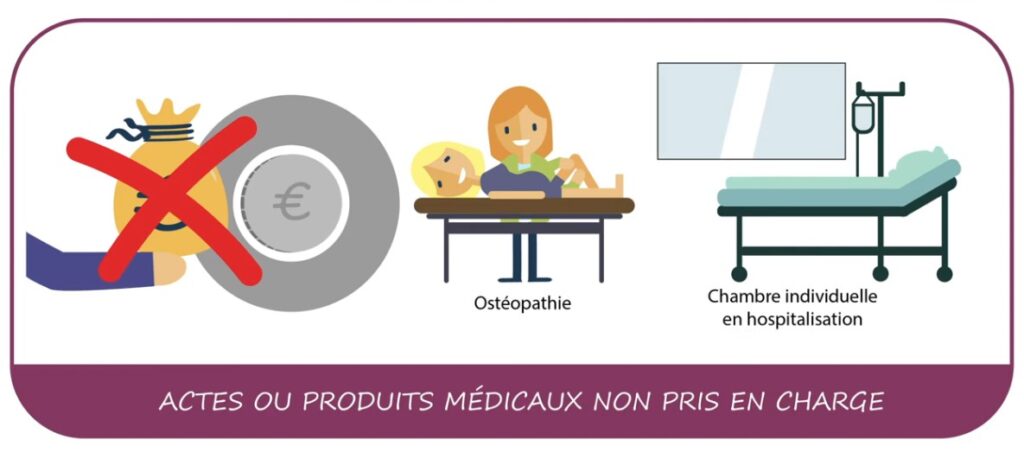
Mutual insurance for foreigners: complete guide to choosing the right one
IN BRIEF Expatriate health insurance : Importance of suitable coverage Premium Options : Advantages of care such as single room Choose the best insurance : Need for in-depth comparison Comparison of reimbursements : Analysis of specific care Anticipate health risks…
Find out about the destination
Before leaving, find out about health risks of your destination. Some countries may have health alerts, rainy days or ongoing outbreaks. Government sites and official platforms are reliable sources for obtaining this information, such as the recommendations available on the Institut Pasteur website.

Mutual insurance for foreigners in France: what you need to know
IN BRIEF Health coverage : Foreigners in France must be covered by a health insurance. Form S1 : Necessary to benefit from insurance coverage in certain cases. Age requirements : Under 28 years old for certain specific formulas. European Health…
Travel insurance: an essential
The trip can hold surprises, so think about take out travel insurance which includes health coverage. This will give you peace of mind. To learn more about the different options, see this site dedicated to travel insurance.

Complete health check: what price in Belgium?
IN BRIEF Cost of one complete health check-up : approximately €369.49 with VAT included. Reimbursements possible byhealth insurance for various examinations. Health check as photography of the state of health at a given time. Free availability for patients of 45…
Prepare the necessary documents
Don’t forget to check your identity documents and health. Make sure your passport is valid and bring your health record, which is essential in case of medical need abroad. To consult the documents required for travel, you can refer to this handy link.
Adopt healthy habits while traveling
During your trip, it is essential to maintain good habits in matters of health. This includes respecting hygiene (frequent hand washing, drinking drinking water, etc.) and eating a balanced diet. Avoid raw or undercooked foods in risk areas to reduce the risk of food infections.
Stay informed during your stay
Finally, stay listening to local news and health recommendations during your trip. Follow the advice of local authorities to ensure your safety. This will allow you to fully enjoy your experience without compromising your health.
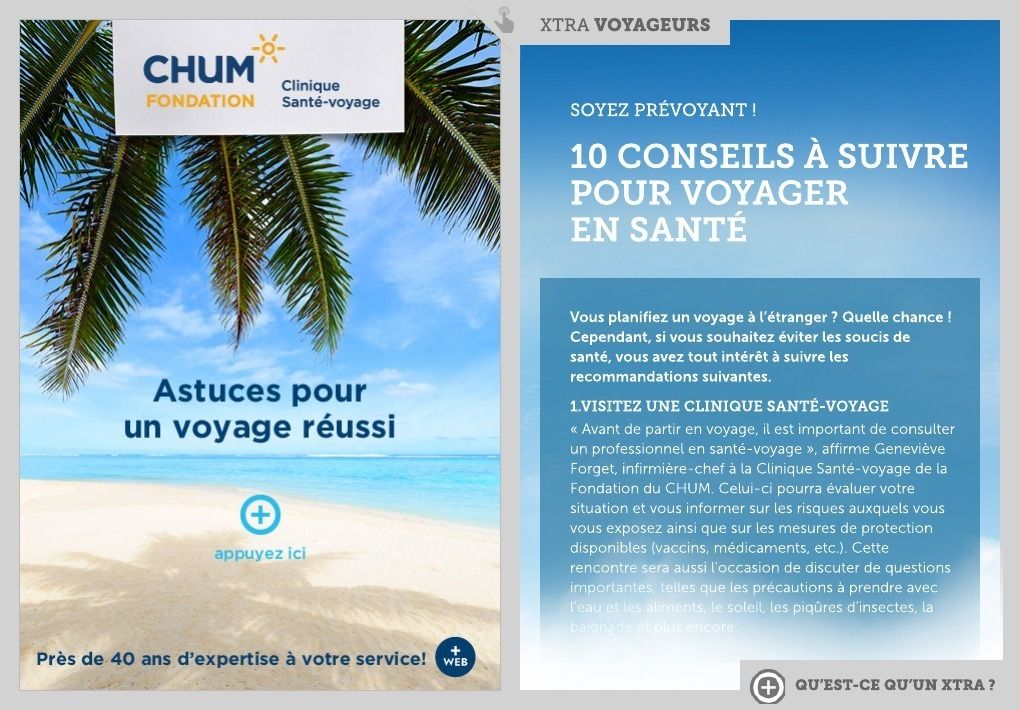
When it comes to going abroad, health is an often overlooked but crucial aspect of your preparation. By following a few wise tips, you can travel with peace of mind and fully enjoy your adventure. Here are the essential recommendations to take into account in order to guarantee your well-being throughout your trip.
Consult your doctor before leaving
Before packing your bags, take the time to consult your doctor at least 6 weeks before departure. This meeting is essential to discuss your travel plans and check whether vaccinations are necessary, particularly against yellow fever if you go to a risk area. Do not underestimate the importance of this step; your doctor will be able to guide you on the precautions to take depending on your destination.
Find out about health risks
Each country has its own health risks. To find out more, consult reliable sites such as those of French government Or the Canada site. These platforms provide you with important information on endemic diseases, entry conditions and local specificities to take into account.
Take out travel insurance
Before leaving, it is essential to take out travel insurance. This coverage will protect you in the event of an accident or illness abroad, thus preventing you from unexpected expenses. Remember to check the nature of your coverage to make sure it meets your needs. Do not hesitate to also inquire about referral to a wage loss insurance in case of prolonged illness.
Think about your first aid kit
Always carry a first aid kit adapted to your destination. It should contain basic medicines, antiseptics, bandages and preventative treatments depending on local risks such as malaria. Also keep your health record, and make sure you have the necessary documentation for all your medical treatments.
Respect hygiene rules
During your trip, adopt hygiene habits rigorous. Wash your hands regularly, especially before eating, and avoid consuming raw foods or unsafe water in areas where public health may be compromised. These simple actions can significantly reduce the risk of foodborne illnesses and infections.
Learn about destination safety
Before leaving, consult the safety recommendations of French authorities or reliable travel guides. Stay informed of political or environmental situations that could affect your stay. This will allow you to adjust your plans and stay safe throughout your trip.
With these tips, be sure to leave safely serenity. Your health should be a priority, so prepare properly to make the most of your future adventures.
Traveler health: essential advice for a safe trip
| Advice | Importance |
| Consult your doctor at least 6 weeks before departure | Assess vaccination and prevention needs |
| Check required vaccinations by country | Avoiding preventable diseases |
| Travel insurance with medical coverage | Financial protection in the event of a health problem |
| Avoid untreated food and water | Reduce the risk of gastrointestinal diseases |
| Carry a first aid kit | Save time in the event of a minor incident |
| Find out about local health conditions | Be better prepared for specific situations |
| Provide common medications | Manage various ailments without stress |
| Use a European social security card | Facilitating access to care in Europe |
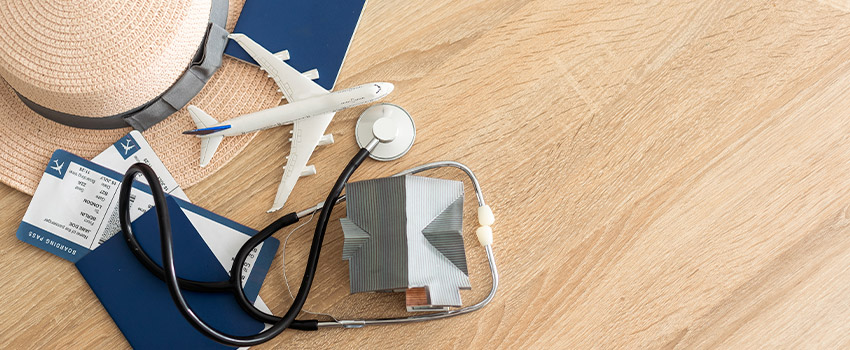
Traveler health: essential advice for a safe trip
Going on an adventure is a dream for many of us, but it is essential not to neglect our health. Before flying off to new horizons, it is crucial to take certain precautions. In fact, the health preparation is just as important as the choice of destination. Take stock with your attending physician at least six weeks before your departure can make all the difference. He will advise you on the necessary vaccines and the potential risks associated with your destination.
When we talk about health while traveling, we often think of vaccinations, but we must not forget disease prevention. If you pass through a risk area, it is essential to be vaccinated against yellow fever and, depending on destinations, other vaccinations may also be required. The consultation of specific information by country is essential to be informed of health alerts and practices in force on site.
Once there, vigilance remains essential. Carry a basic first aid kit which can be of great help in the event of a small incident. Also think about take out travel insurance, which will cover you in the event of an unforeseen health problem. Medical costs abroad can be high and having adequate coverage will allow you to travel with peace of mind.
Finally, it is important to stay up to date with the safety advice of the country you are visiting. Find out about the local customs and the laws in force can prevent many inconveniences. Don’t hesitate to memorize emergency numbers and embassy contact details can also be very useful to you. By taking the time to prepare properly, you can ensure a more peaceful and adventurous vacation, while protecting your health and safety.
Traveler health: essential advice for a safe trip
Before leaving for a new adventure, it is essential to prepare properly in terms of health. Traveling can be an unforgettable experience, but it is crucial to take into account certain recommendations to guarantee your well-being and that of your loved ones. In this article, we offer you practical advice and key information to ensure you travel with complete peace of mind, whatever your destination.
Anticipate health needs
Before packing your bags, it is recommended to consult your attending physician at least six weeks before your departure. This will allow you to assess your needs in terms of vaccinations and to discuss possible preventive treatments to consider. Certain regions of the world, for example, present risks of diseases such as yellow fever or the malaria, which require special attention.
Check the validity of your vaccinations
Vaccinations should not be taken lightly. Make sure your usual vaccinations are up to date, and find out which specific ones are required for your destination. For travelers going to risk areas, the yellow fever vaccine may be mandatory. Keep in mind that some vaccinations take time to be effective, so it is advisable to get started early.
Find out about the health risks in the country
Familiarize yourself with the health risks associated with your destination. Consult recommendations and advisories from public health agencies to understand potential dangers and best practices to adopt. Also find out about entry requirements, including health requirements in force, to avoid any unpleasant surprises upon your arrival.
Preparing a first aid kit
Prepare a first aid kit is a great initiative for any trip. Include essential medications, remedies for common ailments (like headaches or allergies), and care items for minor injuries. Remember to take specific medications with you if you are following a particular treatment. Don’t forget to check the rules regarding the transport of medicines depending on the countries crossed.
Strengthen your personal security
Health also requires a good sense of security. Before leaving, find out about the political and social situation in the country visited. Familiarize yourself with the laws and the local customs, as they may differ greatly from those in your country of origin. When in doubt, remain vigilant and avoid venturing into unfamiliar areas alone, especially at night.
Take out travel insurance
One of the most important steps in your preparation is subscribing to a travel insurance. Make sure it more than covers medical expenses as well as your repatriation in case of emergency. Also check details regarding exclusions and coverage limitations so you are fully aware of your protection during your trip.
Prepare for possible unforeseen events
Finally, stay flexible during your trip. Unforeseen events can happen, whether it’s lost luggage or a sudden change in health. Take the time to memorize local emergency numbers and know how to access medical services if needed. Preparation is the key to traveling safely and enjoying every moment to the fullest.

Traveler health: essential advice for a safe trip
When you are preparing to go abroad, it is essential to consider your health as a priority. To travel peacefully, take the time to find out about the health risks in your destination. Many countries require specific vaccines, like the one against yellow fever, especially if you come from a risk area. Before leaving, consult a health professional at least six weeks before your trip so that they can assess your vaccination and prophylaxis needs.
Do not neglect the prevention. Find out about the endemic diseases and the measures to put in place to protect yourself. This includes the malaria prevention or the use of mosquito repellents, depending on your destination. Take the time to prepare your first aid kit with basic medications and your usual prescriptions. Also make sure you have all your necessary documents, in particular your health record and your social security card.
It is also essential to protect yourself against possible emergency situations. Subscribe to a travel insurance which includes repatriation assistance is an essential precaution. This will allow you to have support in case of unforeseen health problems. When traveling, stay vigilant and regularly inform yourself about the latest news in your place of stay. By remaining prepared and well informed, you will be able to take full advantage of your experience abroad, while preserving your health and safety.
Traveler health: essential advice for a safe trip
Consult a doctor at least 6 weeks before your departure allows you to receive personalized advice on your health and to be vaccinated if necessary, thus guaranteeing a more peaceful trip.
THE vaccines important ones vary depending on your destination, but it’s crucial to learn about those like yellow fever, which is obligatory for travelers coming from risk areas.
To avoid illness, adopt preventative measures such as using insect repellents, getting proper vaccinations, and taking health precautions.
It is strongly recommended to take out travel insurance including coverage in the event of accident, illness or repatriation, as a safety measure when traveling.
Make sure you have your identity documents, your European social security card and your up-to-date health record, containing all vaccinations received.
Find out more from the health authorities and consult the recommendations specific to your destination to be informed of health and safety risks.
